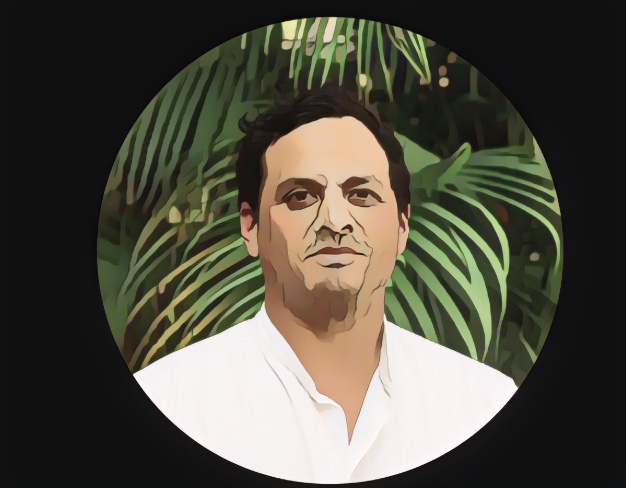
In Kenya, more than 75% of households use dirty fuel for cooking. Though clean LPG is available, it comes in cylinders sold in fixed quantities, making it unaffordable for most people. PayGo Energy, a Kenyan energy company, introduced a Cylinder Smart Meter that can be attached to these cylinders to measure gas flow and enable payment per consumption to drive affordability, accessibility, and scale in the market.
PayGo Energy, a tech company founded in Kenya in 2015, had a mission to help developing countries gain access to clean cooking fuel. They saw that clean gas, called LPG, was only sold in big, expensive containers that many low-income families couldn't afford. Because of this, these families had to use cheaper, more dangerous fuels like charcoal and firewood.
To fix this, PayGo created a "pay-as-you-consume" system for LPG. Their smart meter, the first of its kind in the world, attaches to a gas cylinder and lets customers buy as much gas as they can afford using their mobile phones. PayGo also has software to manage the entire process of distributing and selling the gas.
The company partners with gas marketers to sell its technology in important markets. They are currently growing in Kenya and testing their system with partners in countries like the Philippines, Bangladesh, Vietnam, and the Democratic Republic of Congo.
PayGo has identified two primary issues they aim to solve:
Competition
PayGo’s main competitor is M-Gas, which offers pay-as-you-go LPG in Kenya. The main difference between M-Gas and PayGo is the business model. M-Gas is focused on building its own LPG distribution and retail business, whereas PayGo partners with LPG companies that distribute its technology. Koko Networks is another competitor. Koko has developed an ethanol cookstove and canister, enabling households to access liquid ethanol as a renewable alternative to LPG.
Competition is a good thing. The problem we are trying to solve is so vast and entrenched that it necessitates an ecosystem approach. The more companies bring awareness to the clean cooking crisis and invest in the space, the better.
Market size
PayGo’s target end-customers are low-income households (PPP per capita GDP of < $5,000) situated in large urban areas (1 million+ people). PayGo estimates that in 2019, there were 49.9 million households that met these criteria in its ten priority markets alone. By 2025, this number will grow to 59.6 million.
Challenges
On the end-customer side, the response is positive. Pay-as-you-go is a concept that consumers in this part of the world are familiar with, and mobile money adoption is high – so we do not need to create new behaviours.
One area we have been working on with our partners is pricing. We need to charge a premium on pay-as-you-go to cover the cost of the technology and generate profit. However, it is a price-sensitive market, and consumers are savvy. So, balancing commerciality and providing good value to the customer is a balancing act.
We have also made significant progress securing partnerships with top LPG marketers in our target regions. While these companies are well-versed in LPG distribution, they require additional knowledge in last-mile logistics and using digital tools. Therefore, we must put in a lot of effort to bring our partners up to speed and guarantee the successful implementation and scaling of the PayGo model.
As for our supply, we are still experiencing difficulties due to the global semiconductor shortage, which is affecting hardware companies worldwide. We are working diligently to find solutions that will help us improve lead times and decrease our vulnerability to these challenges.
Expansion
We focus on expanding in Kenya and conducting successful test runs in the Philippines, Bangladesh, Vietnam, and the DRC. These markets have great potential for significant growth. While we have several potential partnerships and expansion markets in mind, we are being careful not to fall into the common startup mistake of trying to do too much at once.
Before considering new markets, we examine various factors such as commercial viability (such as the size of the market and LPG infrastructure), technical feasibility (including cylinder valve compatibility and mobile money adoption), and regulatory requirements (such as import regulations and LPG pricing regulations).
Regulatory Compliance
Regulatory and compliance requirements vary across different markets. In Kenya, we collaborated with the regulatory authority to establish a Standard for LPG Smart Metering. We are committed to compliance and regularly engage with regulatory and industry bodies. Our CSM is certified with ATEX Zone II, the top safety standard for electronic devices in an explosive environment. This certification is important to demonstrate our commitment to safety when working with regulators.
Like most sectors in Africa, The LPG sector has seen remarkably little consumers data. companies growing in Africa need to learn who their customers are. But you are not going to buy data, You have to collect it. For PayGo, it started with collecting and analyze household-level consumption, spending, and demographic data, which PayGo did through their hardware and platform.
Tracking the movement of cylinder stock across the supply chain, allowed them to see the power of this data – from understanding price elasticity better, comparing behaviours over time and across regions, improving supply chain efficiency, and selling lateral products and services. It’s the only sure way to win for FMCGs or basic services in Africa